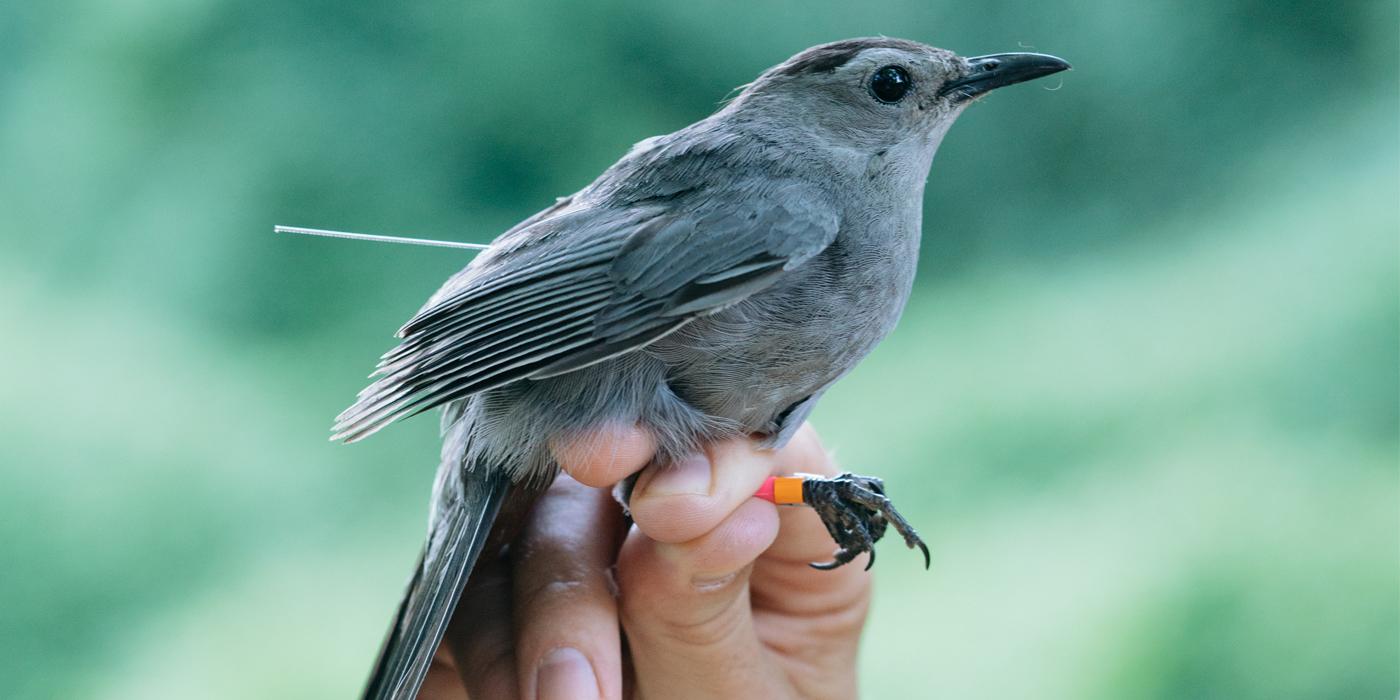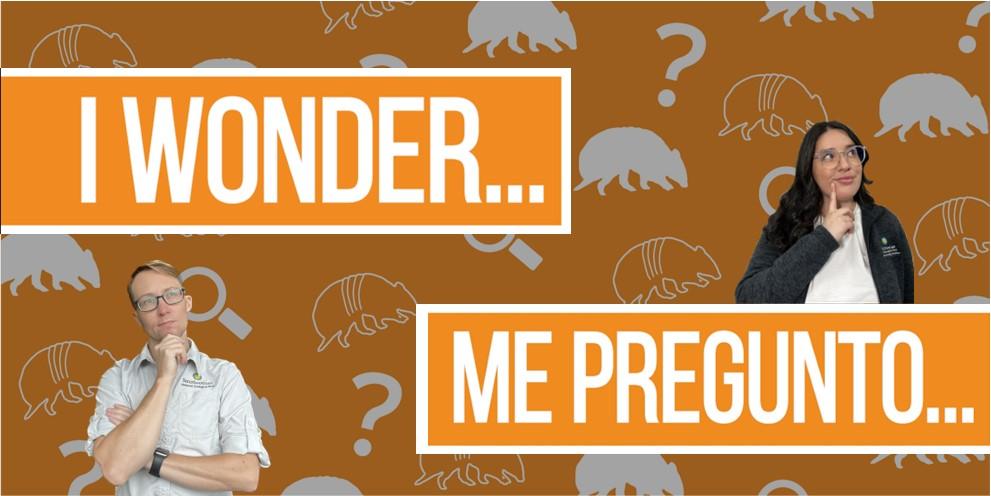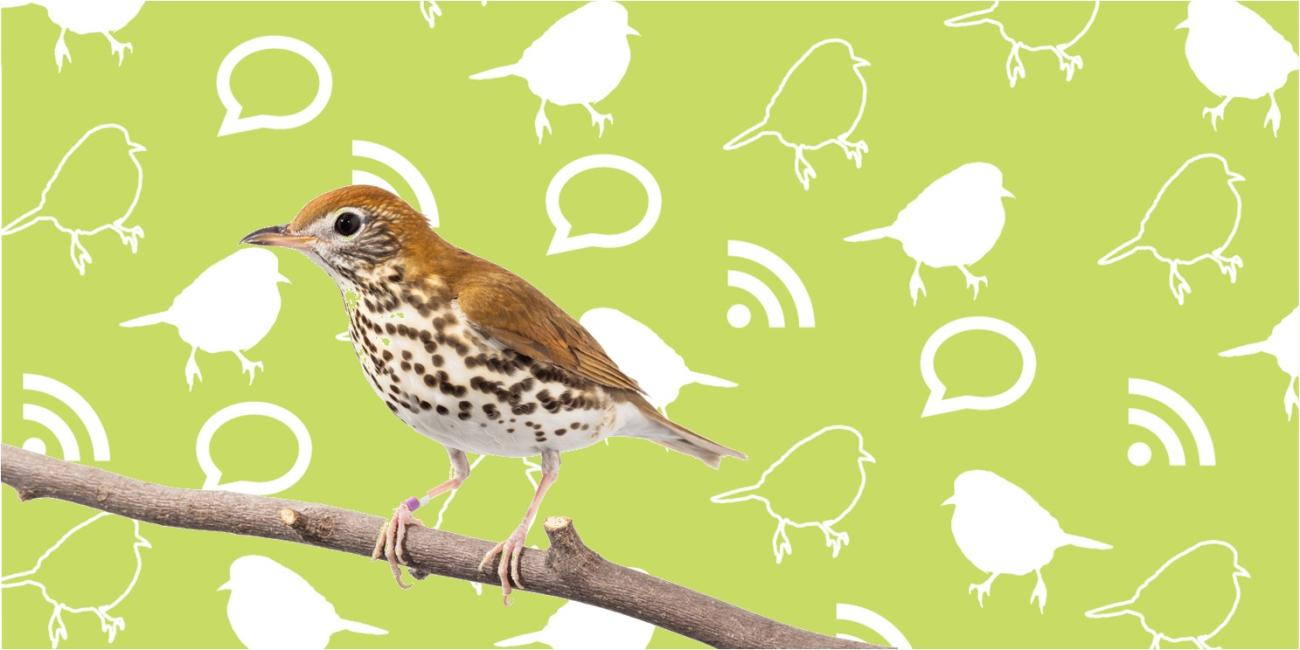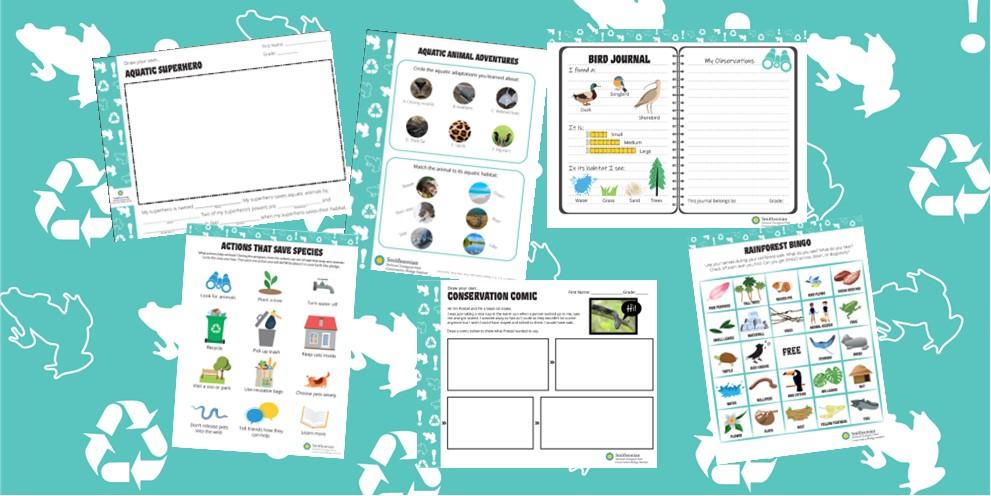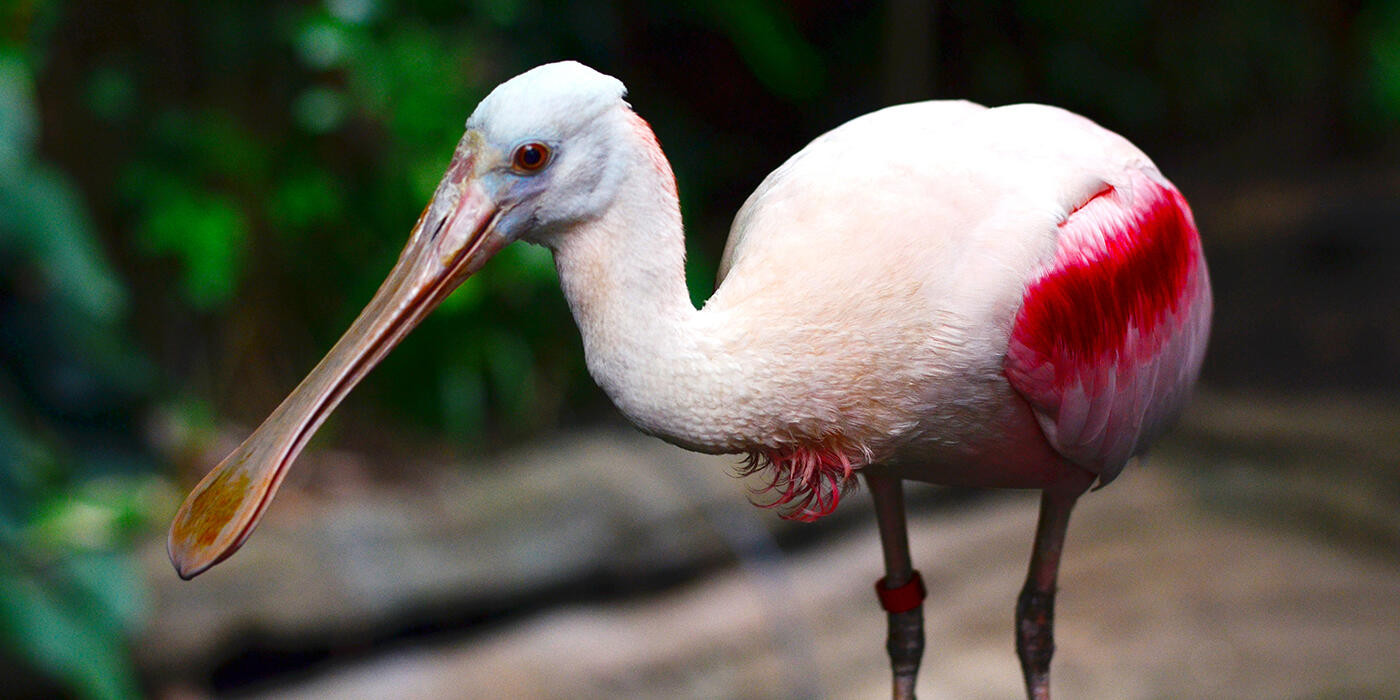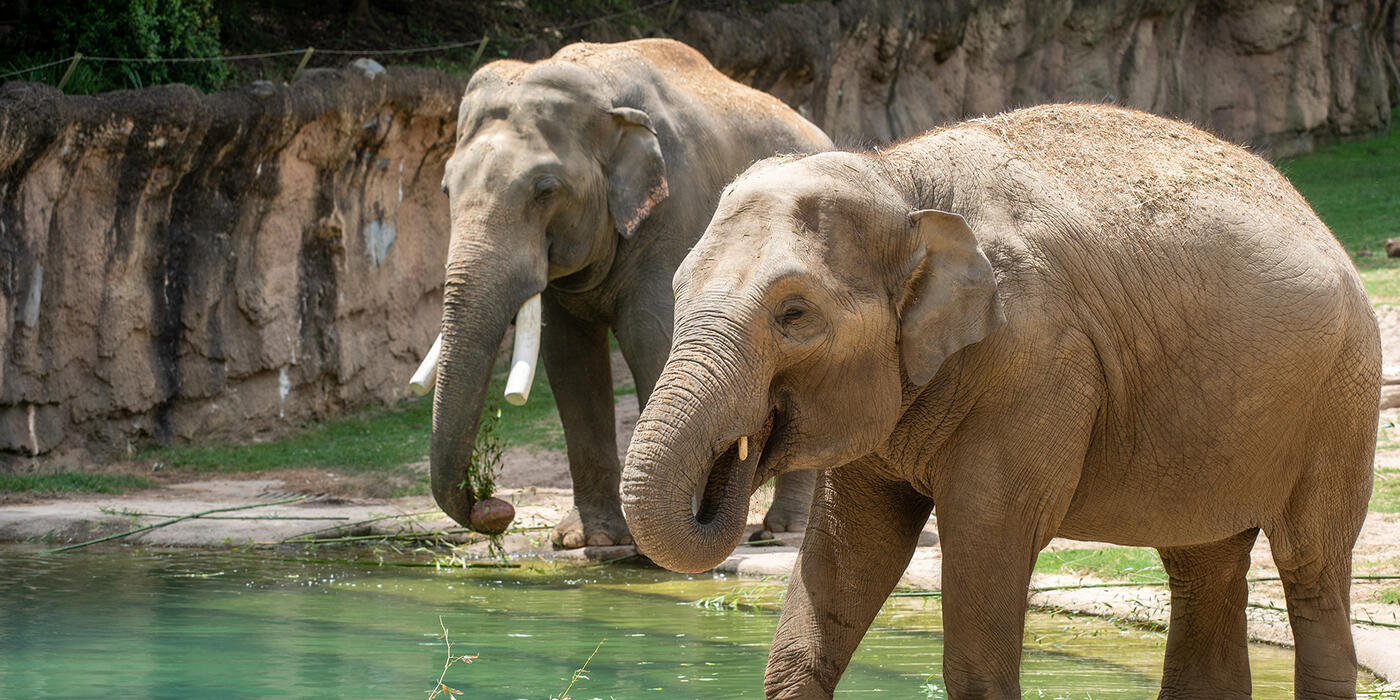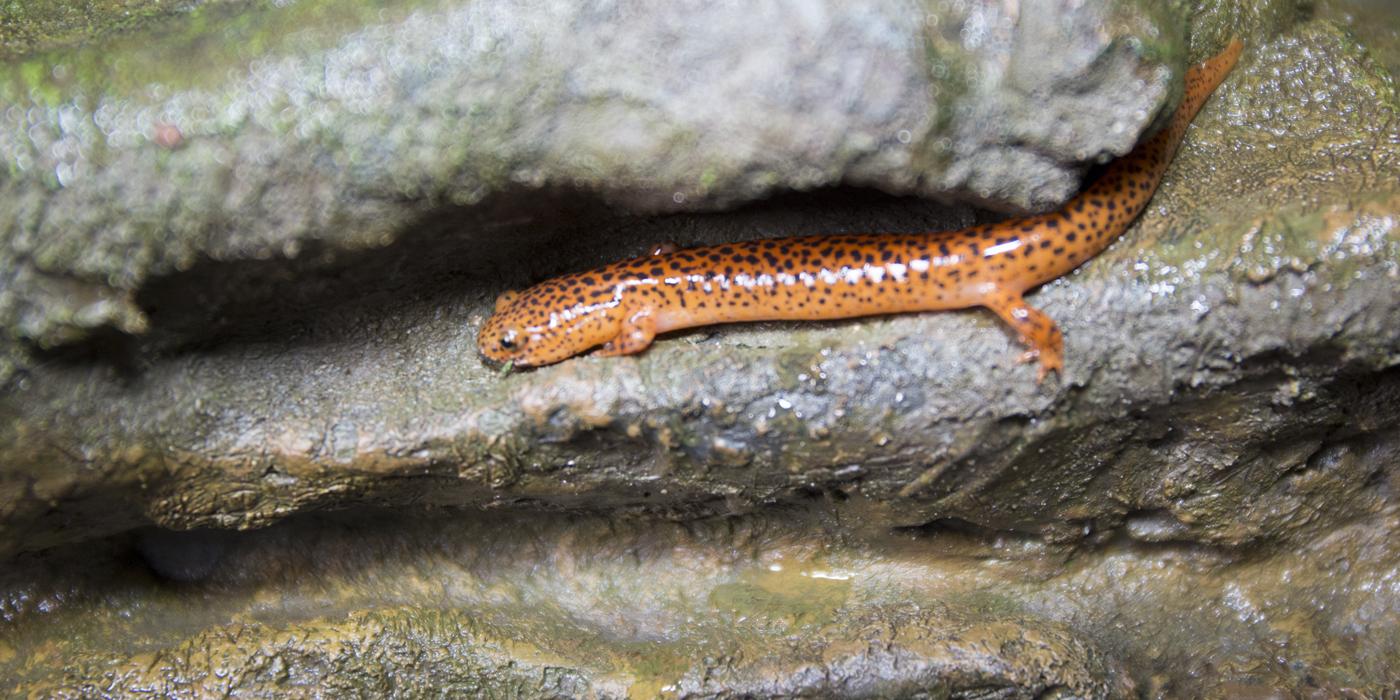Birds are everywhere! Learn about some of our neighborhood birds and the techniques used to study them from a migratory bird scientist.
This virtual school program is part of Conservation Classroom, a collection of monthly lessons for K-5 students. This program reaches 2-6 students a little better, but we've had all ages enjoy it. Each lesson has four elements: wonder (video), engage (live virtual program), act (activities), and connect (video). Follow along with all four parts or pick and choose the videos and activities you want to explore.
2-8
Supports NGSS 2-PS1-2, 2-LS2-2, 2-LS4-1, 3-LS1-1, 3-LS3-1, 3-LS3-2, 3-LS4-3, 4-LS1-1, 5-LS2-1, MS-LS1-4, MS-LS1-5, MS-LS2-A
birds, migration, observation, tracking, bird banding
Patterns, Cause and Effect, Interdependence of science, engineering, and technology
Free
Wonder ›
I wonder... how do scientists study birds? Come along to discover how scientists study birds with banding and tracking tools.
Click the "Bird Banding" button below to watch this I Wonder video.
I wonder... what is migration? Explore with us as we follow two migratory birds, and find out why they embark on these journeys.
Click the "Bird Migration" button below to watch this I Wonder video.
Preguntarse
Me pregunto... ¿Cómo estudian los científicos a los pájaros? Acompáñanos a descubrir cómo los científicos estudian las aves con herramientas de anillamiento y rastreo.
Haga clic en el botón "Anillamiento de aves" a continuación para ver este video de I Wonder.
Me pregunto... ¿Qué es la migración? Explore con nosotros mientras seguimos a dos aves migratorias y descubra por qué se embarcan en estos viajes.
Haga clic en el botón "Migración de aves" a continuación para ver este video de I Wonder.
Engage ›
Access the recording to enjoy the program.
Due to technical difficulties that occurred this year, we are sharing last year's recording for a better experience.
In this free, live virtual program, students met some neighborhood birds and learned techniques used to study them, such as bird banding, from a migratory bird ecologist.
Language & Access: English, Spanish (simulcast), American Sign Language interpretation, and live English captions.
Comprometer
Accede a la grabación para disfrutar del programa.
Debido a dificultades técnicas que ocurrieron este año, compartimos la grabación del año pasado para una mejor experiencia.
En este programa virtual gratuito y en vivo, los estudiantes conocieron algunas aves del vecindario y aprendieron técnicas utilizadas para estudiarlas, como el anillamiento de aves, de un ecólogo de aves migratorias.
Idioma y acceso: inglés, español (transmisión simultánea), interpretación en lenguaje de señas americano y subtítulos en vivo en inglés.
Act ›
During the live program, take scientific notes as we measure and weigh birds. After the program, send a postcard about your migratory bird journey, test your vocabulary skills, and take your bird journal outside and make observations. Bonus activities - You can also watch Learn to Draw a Bird and draw your own bird. Share your drawings with us at nzp-education@si.edu.
Click the "Activities" button below to view the activities.
Acto
Durante el programa en vivo, tome notas científicas mientras medimos y pesamos las aves. Después del programa, envíe una postal sobre su viaje de aves migratorias, ponga a prueba sus habilidades de vocabulario y lleve su diario de aves afuera y haga observaciones. Actividades adicionales - También puedes ver Aprende a dibujar un pájaro y dibujar tu propio pájaro. Comparte tus dibujos con nosotros en nzp-education@si.edu.
Haga clic en el botón "Actividades" a continuación para ver las actividades.
Connect ›
Meet Nathan, a research ecologist and migratory bird scientist! As part of his "unZOOsual" career, Nathan study birds as they travel between their summer and winter homes to learn how to save them.
Conectar
¡Conoce a Nathan, un ecólogo investigador y científico de aves migratorias! Como parte de su carrera "unZOOsual", Nathan estudia a las aves mientras viajan entre sus hogares de verano e invierno para aprender cómo salvarlas.
For Educators
Educator's Materials
Conservation Classroom: Exploring Neighborhood Birds is best suited for grades 2-6. The full lesson consists of two videos, a live program, and two activities. Refer to the Smithsonian Learning Lab collection to help teach this lesson.
Letter to Guardians
After participating in the live program, print or send the following letter to guardians, explaining what their student learned in this lesson and how they can continue to engage from home.
Carta para el tutor
Después de participar en el programa en vivo, imprima o envíe la siguiente carta a los tutores, explicando lo que su estudiante aprendió en esta lección y cómo pueden continuar participando desde casa.
